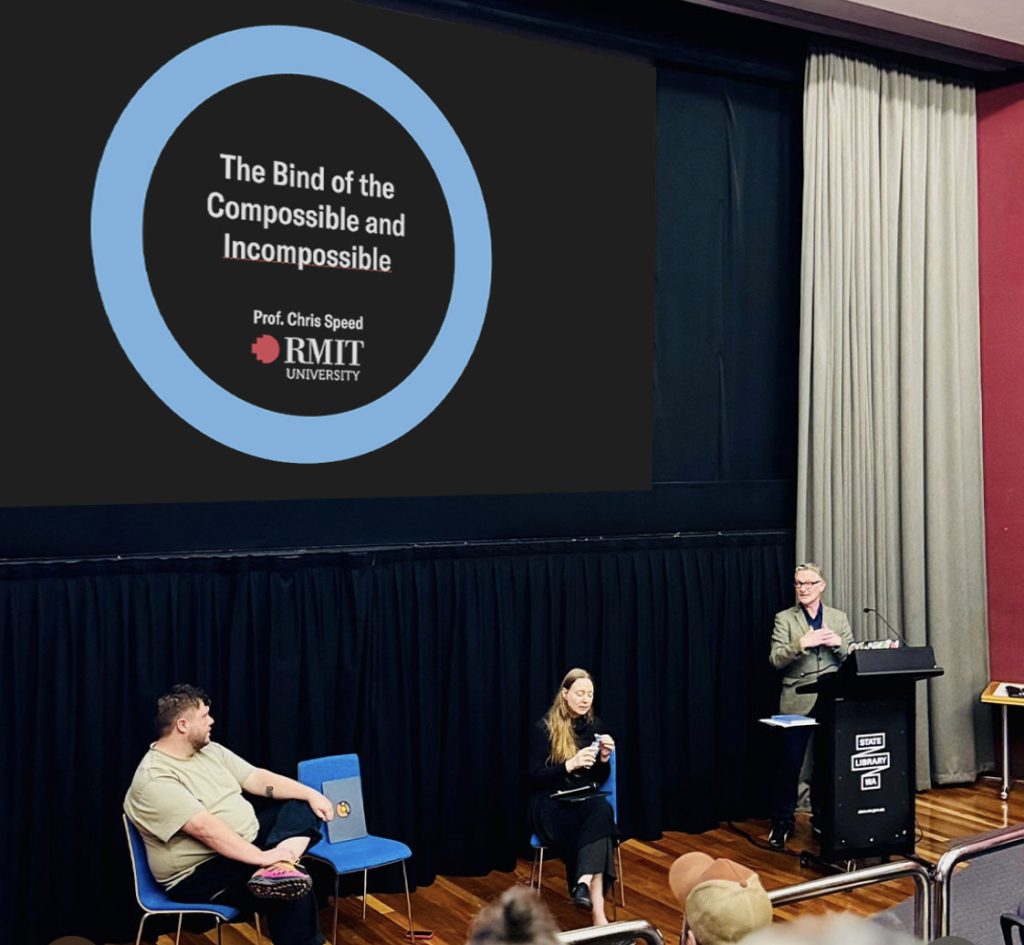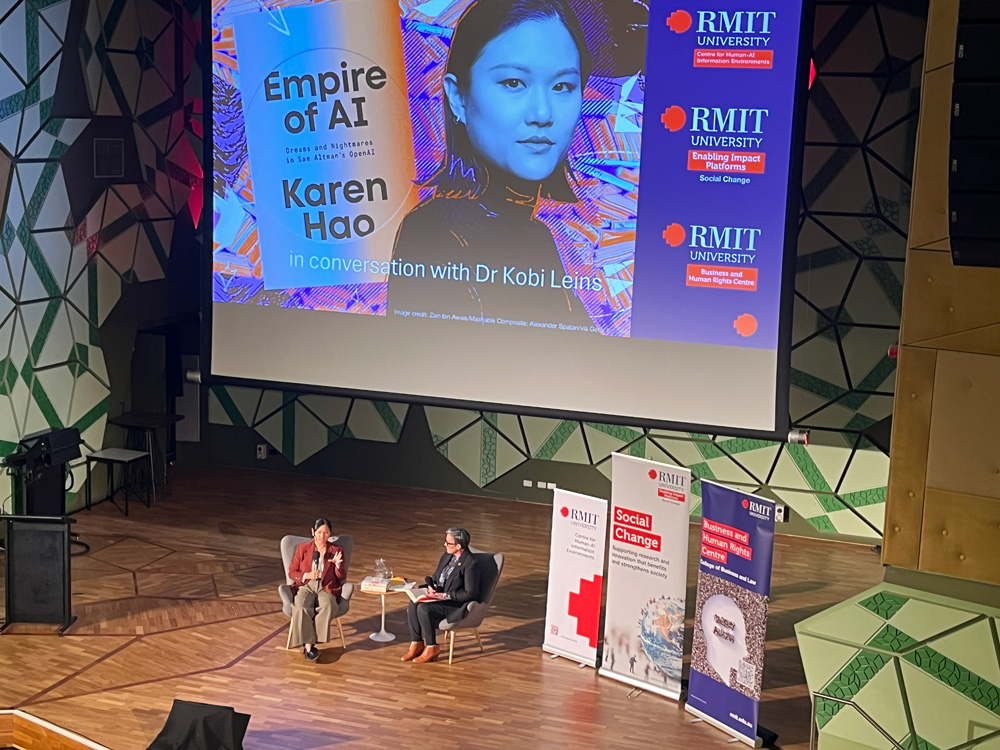“This communication is not for you.”
Looking to connect 2 recent events / conversations (as is my want) this time to explore a fundamental tension in how we approach AI’s relationship to power: are we designing systems that foreclose possibilities or ones that open compossible worlds?
In July at Politics of the Machines Perth https://lnkd.in/gCxQM2YY a panel with Claudia Westermann and Michael Dunbar “Experiments in Synthetic Logic” explored how AI might interface with more-than-human perspectives. Building tentative bridges between Chinese painting philosophy where “rocks must be alive,” and revisiting the Melbourne Design Week synthetic data workshops that imagined what conversations between common blue butterflies or forest floors might be like. When Madelaine Thomas pushed GPT to generate mushroom field notes “less human,” it occasionally responded: “This communication is not for you.”

Meanwhile RMIT University Karen Hao ‘s conversation about “The Empire of AI” revealed the mechanics behind these same systems chaired by Lisa M. Given (FASSA, FASIST). OpenAI’s scaling paradigm demands such massive data sets that quality becomes irrelevant. Data workers in Venezuela, Kenya, and the Philippines label training content in digital sweatshops, moving from crisis to crisis as companies chase cheaper labour.

The Double Bind of Representational Systems:
Both conversations revealed the same underlying trap. Gregory Bateson’s double bind, where all available responses seem to be bad responses. manifests clearly in our relationship with AI systems. We’re caught between needing these tools to imagine alternatives while simultaneously reinforcing the very systems of extraction we want to escape.
Our experiments used GPT to generate synthetic data for more-than-human perspectives, briefly transgressing when it declares “This communication is not for you.” But as discussed, designing with data is only a matter of the past, and every representational model (that is haunted by what we chose to capture) forecloses other possibilities by encoding existing power structures.
Hao’s analysis revealed the mechanics of this foreclosure: AI’s scaling paradigm systematically excludes the very perspectives our experiments tried to surface. There’s no data for birds, bees, or Indigenous knowledge systems in smart city datasets because “everything that needs to be constructed through OpenAI needs to be paid for.” The economic model determines what counts as reality.
Perhaps the question isn’t how to make AI more “ethical” within current scaling paradigms, but whether we can break the double bind that positions us as either exploiters or exploited. Can we move from designing systems that mine the past to ones that compost new possibilities?
The mushroom language isn’t for us—but maybe that’s exactly the point.
hashtag#AIColonialism hashtag#SpeculativeDesign hashtag#MoreThanHuman hashtag#DigitalColonialism hashtag#IndigenousAI hashtag#SyntheticData
Related posts

Design Frequencies: Sharing International Practice in Design Research
Already deep into semester two here. Last semester School of Design RMIT College of Design and Socia

The Labour of the Rejected / “Walk the Plank”
Still playing catchup with so many events. A few weeks ago during hashtag#DIS2025, Mafalda Gamboa an

Design Contradictions
Two projects during Melbourne Design Week with collaborators Michael Dunbar and Liam Fennessy to exp

Paradox of Collaborative Speed
Two events in Melbourne over the past 10 days week revealed a tension across contemporary technology

Slow Materials, Slow Money: Can Design Decelerate?
Two events that I’m trying to tie together to glean some connections. The CHI panel on Regenerativ

From Food Networks to AI Governance
Back to reporting on events in Narme/Melbourne. From Food Networks to AI Governance: Reflections on

Planetary Pedagogies
Following the launch of PlanetaryCivics two weeks ago, this is the second extension to contributions

Space Debris to House Keys
Part 2 of catching up with the weeks of activity in Melbourne through February. From Space Debris to

Measuring our demise
Oh Melbourne, three parallel events that spanned the week: RMIT College of Design and Social Context